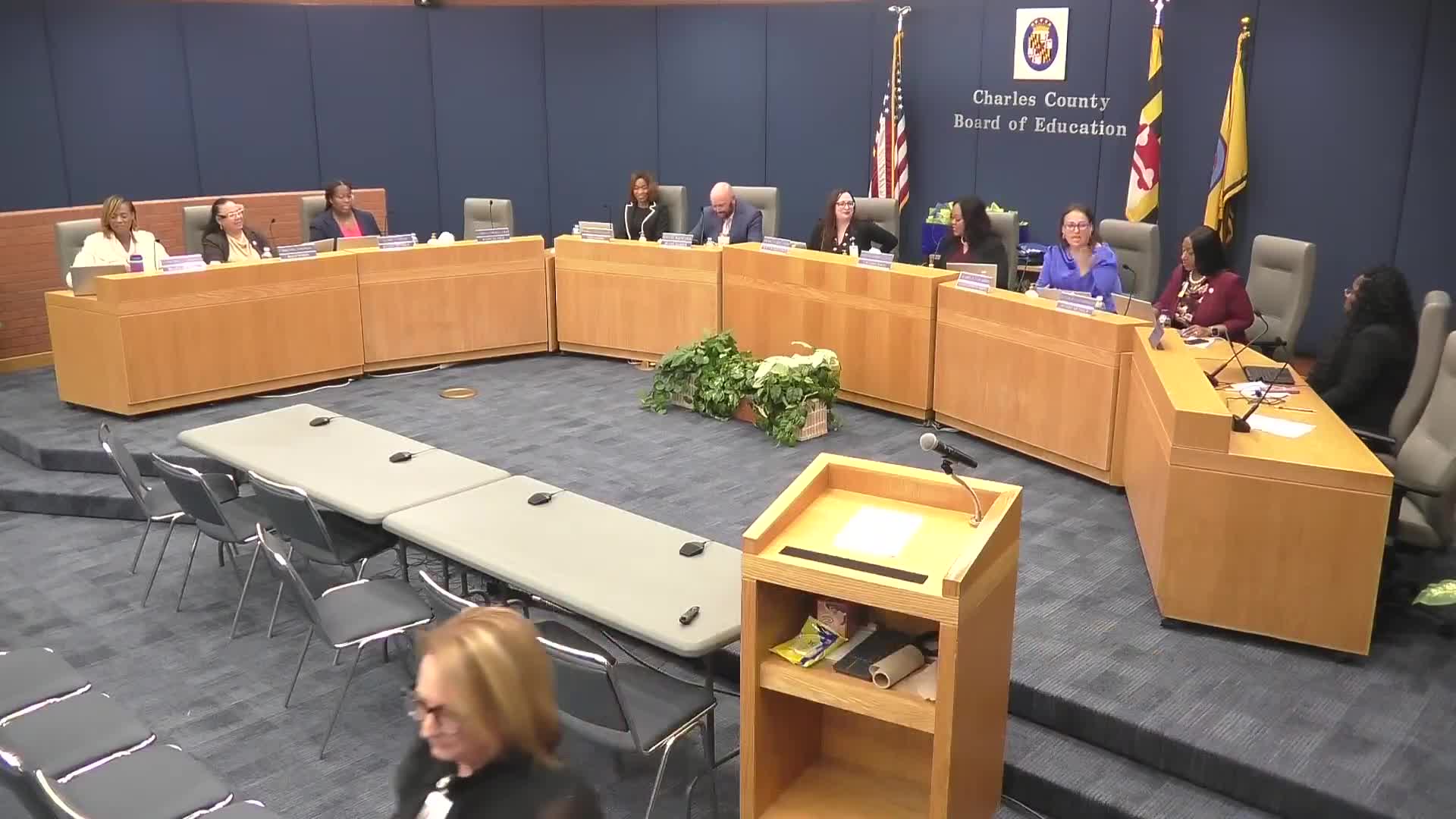Board backs pilot peer‑court program to address elementary behavior problems

Summary
Charles County’s school board agreed by consensus to include a peer‑court pilot in FY27 planning, aiming to use trained teen judges and restorative dispositions to reduce repeat misconduct among upper‑elementary students.
By consensus during the Nov. 4 meeting, the Charles County Board of Education asked the superintendent to develop a fiscal‑year 2027 budget line and implementation plan for a peer‑court pilot aimed at curbing repeat student misconduct.
Chairperson Janelle Morley introduced the concept — modeled on a program in Canyons, Utah — that would use trained secondary students as peer judges and focus on restorative dispositions (essays, apologies, supervised community service, restorative circles) rather than immediately invoking exclusionary discipline. Morley said the goal was to "teach the students early about making better choices" and to provide support rather than just punitive outcomes.
Student-engagement staff presented county discipline data showing an increase in elementary incidents: total incidents rose to 722 in 2024–25 from 642 the prior year, and minor physical attacks/fighting increased by nearly 40% over three years. Staff said those trends justify exploring alternatives to suspensions.
Board members asked practical questions about staffing, location, privacy and parental consent. Possible models discussed included locating the program at walkable schools, using existing pupil‑personnel workers or a 1.0 FTE staff member, and recruiting community volunteers. Several members said a pilot at one or two schools would be the prudent first step.
Outcome: The board signaled unanimous consensus to include the peer‑court pilot as a request for FY27 budgeting and asked administration to return with a detailed plan in January that describes staffing, logistics, transportation, and metrics for success.
Why it matters: Board members and staff framed the peer court as a potentially cost‑effective, restorative alternative to short-term suspensions that can leave students without interventions.
Next steps: Administration will draft a budget request and a pilot implementation plan and report back to the board in January with more concrete staffing and cost estimates.

